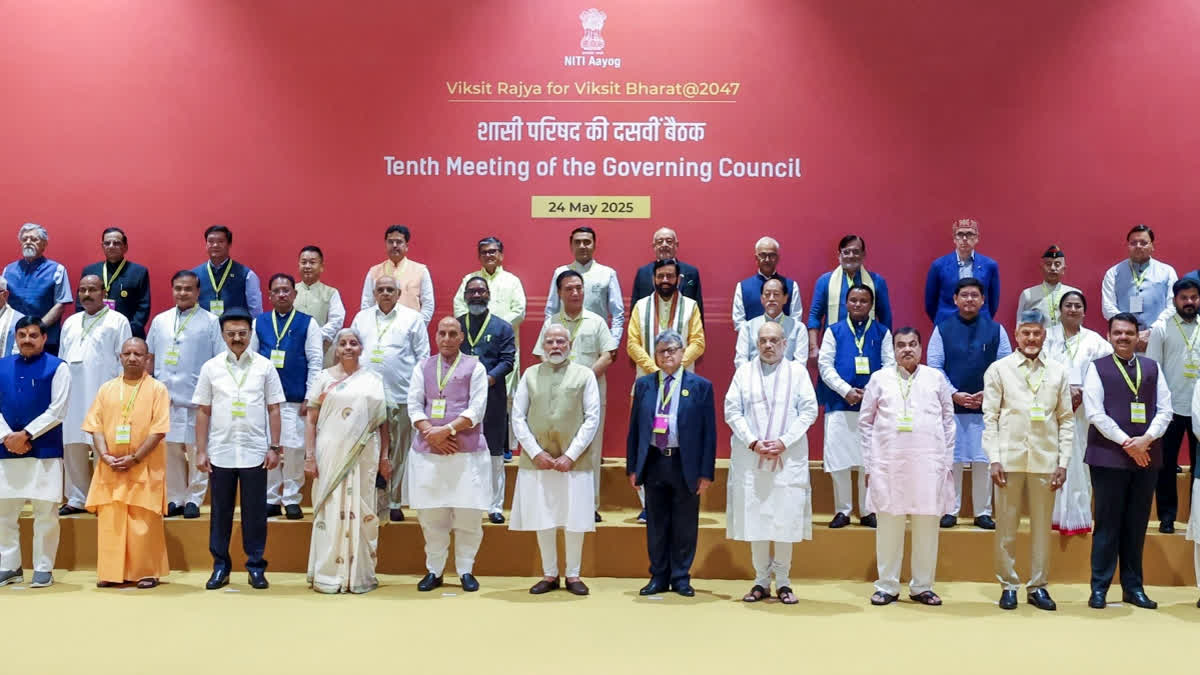

India has officially overtaken Japan to become the world's fourth-largest economy, marking a significant milestone in its economic trajectory. This announcement was made by NITI Aayog CEO B.V.R. Subrahmanyam on Saturday, citing data from the International Monetary Fund (IMF). This achievement reflects India's strong economic growth, strategic policy initiatives, and favorable geopolitical conditions.
Subrahmanyam highlighted that India's economy now stands at USD 4 trillion, surpassing Japan and trailing only the United States, China, and Germany. He expressed optimism about India's potential to further ascend the global economic ladder, projecting that it could become the third-largest economy in the next 2.5 to 3 years. This projection is based on continued economic reforms, robust manufacturing, and sustained investment inflows.
The NITI Aayog CEO emphasized that the current geopolitical and economic environment is particularly conducive to India's growth. The government's focus on industrial strategies and key sector development has played a crucial role in boosting the nation's economic performance. India's competitive manufacturing advantage, coupled with increasing domestic demand and a thriving services sector, has propelled its economy forward.
The IMF's April 2025 World Economic Outlook report supports this positive outlook, projecting India to remain the fastest-growing major economy over the next two years. The report estimates India's economy will grow by 6.2% in 2025 and 6.3% in 2026. This sustained growth rate significantly outpaces global and regional peers, reinforcing India's position as a key driver of global economic expansion. The IMF also projects India's nominal GDP for fiscal year 2026 to reach approximately USD 4,187.017 billion, slightly exceeding Japan's estimated GDP of USD 4,186.431 billion.
India's ascent to the fourth-largest economy has been underpinned by consistent growth across various sectors, including manufacturing, services, and agriculture. Government initiatives such as "Make in India" and "Digital India" have attracted substantial foreign investment and fostered innovation, further strengthening the economy. Additionally, infrastructure development projects, including investments in transportation and energy, have improved connectivity and efficiency, facilitating economic activity.
The achievement also reflects India's resilience in the face of global economic challenges. Despite uncertainties such as trade tensions and the COVID-19 pandemic, India has demonstrated its ability to maintain a steady growth trajectory. The government's proactive measures, including fiscal stimulus packages and support for small and medium-sized enterprises (SMEs), have helped mitigate the impact of these challenges and sustain economic momentum.
Looking ahead, India is poised to continue its economic expansion, driven by a young and dynamic workforce, increasing urbanization, and rising disposable incomes. As India progresses towards becoming a USD 5 trillion economy and beyond, it is expected to play an increasingly influential role in shaping the global economic landscape.